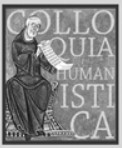Studying the Post-Socialist City in Yugoslavia: An Examination of Multi-Disciplinary Methodologies and Theoretical Approaches
Studying the Post-Socialist City in Yugoslavia: An Examination of Multi-Disciplinary Methodologies and Theoretical Approaches
Author(s): Maja BabićSubject(s): Architecture, Methodology and research technology, Rural and urban sociology, Sociology of Culture, Transformation Period (1990 - 2010)
Published by: Instytut Slawistyki Polskiej Akademii Nauk
Keywords: socialist city; post-socialist city; Yugoslavia; Yugoslav successor states; ideology and architecture; socio-cultural heritage; Western Balkans;
Summary/Abstract: Since the end of the state-socialist era in the early 1990s – and effectively, since the end of the Yugoslav federation and the subsequent wars that had engulfed the Western Balkans for almost a decade – the study of the twentieth-century South-Eastern Europe has intensified. The scholarship on the region’s twentieth-century architecture has been prolific since the early years of the new millennium, and the new generation of urban and architectural scholars has further amplified this trend. However, an inquiry into the post-socialist city in Western Balkans has been relegated largely to the secondary position to the study of the Yugoslav modernist architecture and its role within the socio-political mechanisms of the Cold War era. In this discourse, the study of the post-socialist urban space remains lacking in architectural and urban history – it is mainly conducted within the methodological and theoretical frameworks of sociology, socio-cultural anthropology, and urban geography.
Journal: Colloquia Humanistica
- Issue Year: 2021
- Issue No: 10
- Page Range: 1-22
- Page Count: 22
- Language: English

